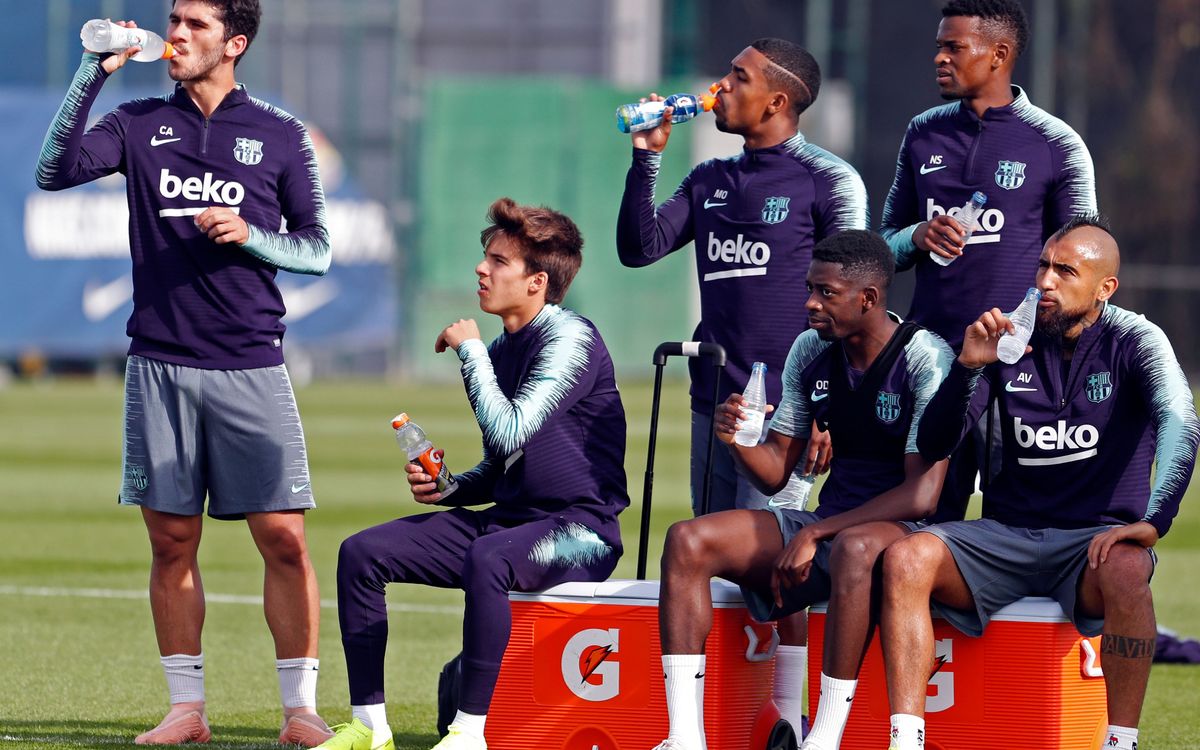The Role of Nutrition in Elite Sports
Nutrition should help optimise everyone's health, but for athletes it also optimises performance and it is a key component for reaching one’s maximum physical development.
A popular saying in recent years is, nutrition is an invisible training. However, we can now say that it has lost its invisible cloak, as it has been proven it can help athletes in numerous ways. Increasingly, athletes are paying more attention to nutrition and they are far more aware of its benefits.
Nutrition is especially important during recovery, to avoid injuries and for the return to play: it helps them return to the field of play after an injury, and to do so sooner and in a better shape.
Another essential aspect is that everything consumed counts: athletes can’t expect to see results if they only take care of themselves on match day. And watching what they eat is part of being a top-class player. The combination of a healthy diet, genetics and training will allow them to become the best version of themselves, and to see their efforts reflected in the results
Eating depending in how you train
It is also important to remember that everything a player eats and drinks should be in accordance with the moment in the season, the week or the competition. It is therefore common to hear the recommendation that athletes should eat depending on the way they train and their competition plan; eating on the day of a double session is not the same as eating on a lighter training day, or if there is a strength session in the gym, as opposed to a competition or a day of rest.
This concept is called periodised nutrition, and it is gaining importance because it helps adapt the athlete’s needs to the particular demands of their training, competition and recovery. By reaching their level of peak health and fitness, they will be able to improve.
Since there is so much competition in the world of sports, the athlete that does not take advantage of every opportunity to reach his or her maximum performance, both in competition and on an average day, will not perform at their best. So, nutrition matters.
Periodised nutrition can also help the different goals set throughout the year. For example, the pre-season goal is not the same as the final phase of the season. In the pre-season, players are returning from their holidays, and the goal should be mainly to improve body composition and ensure that the body has the correct fat and muscle mass indices; this will help them to endure training sessions and give their best during competition.
During the season, there will be weeks with only one match and others with several competitions taking place. This is when the body must be given a special care, to help it regenerate and recover, and to allow it to continue with the demands of competition.
These competitive spikes vary during the season, depending on the sport practiced. It is not the same in football as in basketball, and the demands of one competition are very different from the other. Athletes must therefore adapt to the requirements of both their sport and of the competition in which they are playing, and they must be aware that they should be more careful during the weeks when they have two or three matches.
Choose the Most Suitable Diet
It is also important to understand that there are very healthy foods which are not always the most suitable in terms of the time when they are eaten. For example, broccoli, spinach and legumes are very healthy and have great nutritional value. However, because they have so much fibre, they are not a good option for match day, since they take so long to digest. During competition, the athlete’s blood should ideally flow into the muscles, not in the stomach for the digestion.
What Role Does the Dietitian/Nutritionist Play?
The role of the dietitian/nutritionist is increasingly important. For the 2018/2019 season, 18 of the 20 Spanish professional football league teams, and all the Premier League teams, have one. This is because elite football is more and more demanding. The dietitian/nutritionist is key to enhance player performance.

